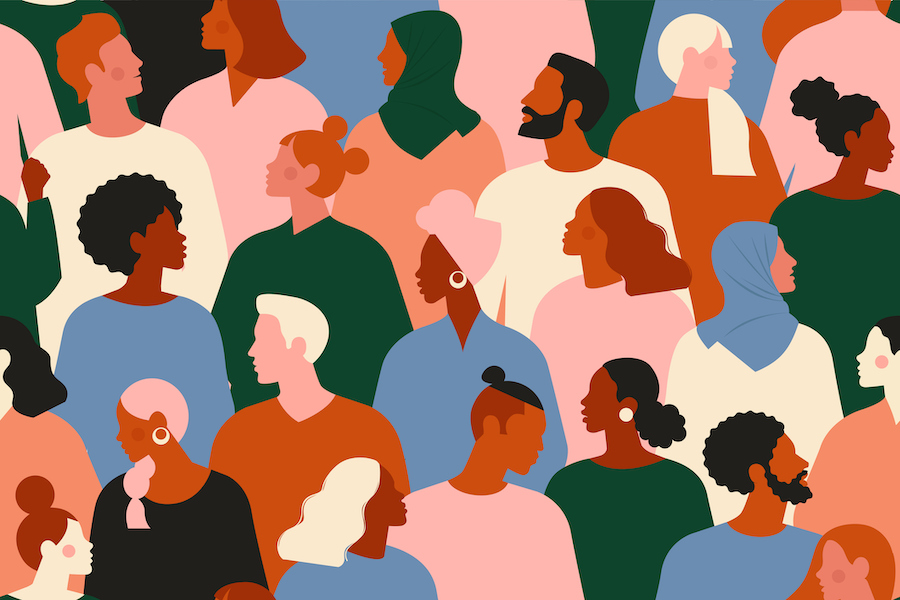We use cookies on this site to enhance your experience.
By selecting “Accept” and continuing to use this website, you consent to the use of cookies.

Through navigating Laurier International Cultural Conversations, we were ultimately enabled to become agents of change by extending our knowledge through discussion. The discussions in HR261 ultimately allowed us to feel more confident and comfortable in having open honest conversations about complex subject matters.
Engaging in topics of multiculturalism and the difficulties faced with such a topic encouraged us to embrace our cultural differences while navigating the hardships of issues such as racism, discrimination and prejudice faced by racial minorities. It is important to stand up for individuals who are POC since they are considered a minority and are often shut down when situations involving racism are surfaced. Having uncomfortable and difficult discussions helped us realized that combatting the fear of conflict is an important barrier to overcome, to successfully combat racism, discrimination and prejudice in today’s society.
In the interest of us living in a highly multicultural society in our country Canada, we were faced with questions of how we can learn to embrace every culture while also working to dismantle a system of white supremacy which dominates Canada. White supremacy culture dominates our everyday lives without us realizing it. White supremacy cultures that have been normalized in our day to day lives include perfectionism, worship over the written word, fear of open conflict and quantity over quality. With the help of participating in Laurier International Cultural Conversations, these examples assisted us in realizing that white supremacy culture has been greatly normalized in today’s society and needs to be combatted.
Further, as a result of such discussions, we found that it is imperative to take the time to ask questions and learn about other cultures living in Canada. By doing so will help individuals adapt and have a better understanding of Canada. It is important to acknowledge that and take the time to learn more about different cultures so it can be easier for individuals to understand us better. This also gives us a chance to understand different cultural norms and values, so we can be respectful and open-minded when communicating with one another.
Furthermore, we are introduced to their social norms by asking questions about their cultures. If we are in a situation where we are communicating with someone who is of a different culture, we know to keep in mind of how easy it can be to miscommunicate and misinterpret things as we have not experienced every culture that resides in Canada. Understanding each culture in Canada is significant as it allows us to embrace the concept of cultural relativism, learning not to be judgmental of other cultures based on our own perspectives. When learning about different cultures, it is important to learn about every aspect instead of the “seen” aspects (food, music, clothing). Learning about the “unseen” (social norms, values) aspect will be more of an asset when having a cross-cultural interaction.
However, we found that conversing with different cultures is a skill that involves being considerate of who you are speaking to. When talking with people of other cultures, it is imperative to enter the conversation with no prejudice, stereotyping or expectations of the person and their culture. This is an important factor because you have to treat the individual like they are someone you have a conversation with on a daily basis, and remove any preconceived notions that have been put there because of society at large. It is essential to be an active listener and ask for clarity when needed.
When engaging in conversation, it may be of help to ask the individual how comfortable they are in speaking English; as citizens of Canada, we should adapt to the needs of each person and their speaking abilities. It is significant to consider that because Canada is highly multicultural, we often will misinterpret or be misinterpreted by others. However, this does not mean we should avoid conversations; instead, we should work to learn how to communicate appropriately and effectively with those of other cultures.
Participating in Laurier International Cultural Conversations assisted us in understanding that even though we meet new people everyday, we never take time to sit down and have a conversation about our different cultural backgrounds, social norms and values. We reside in the same country but come from different ethnicities, cultures and religions. If more of us took the time to learn more about each others cultural differences, it could be the right step to combat racism, discrimination, prejudice and stereotyping.
Amrita Singh, HR261, Criminology, Brantford
Lauren Simmons, HR261, Human Rights and Diversity, Brantford